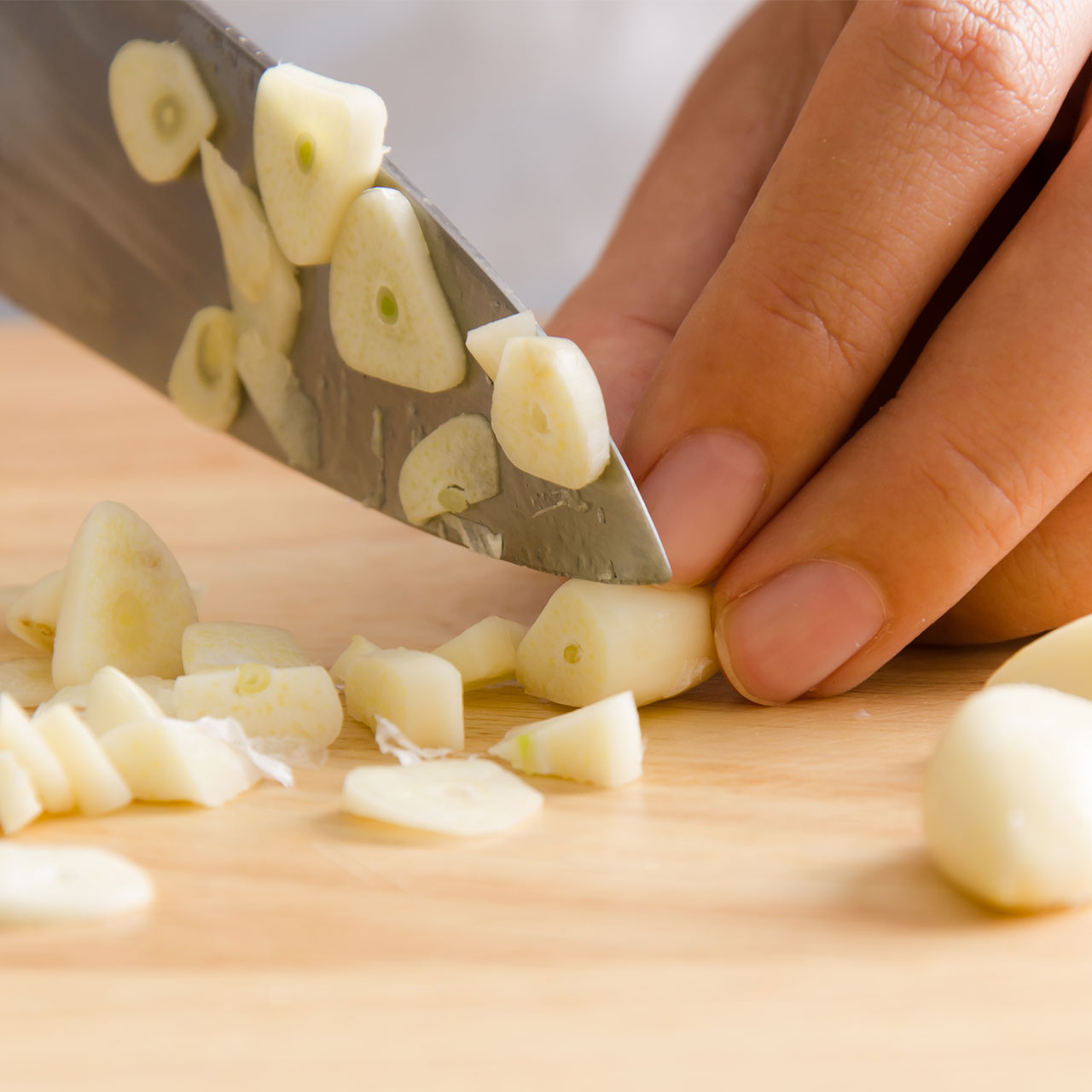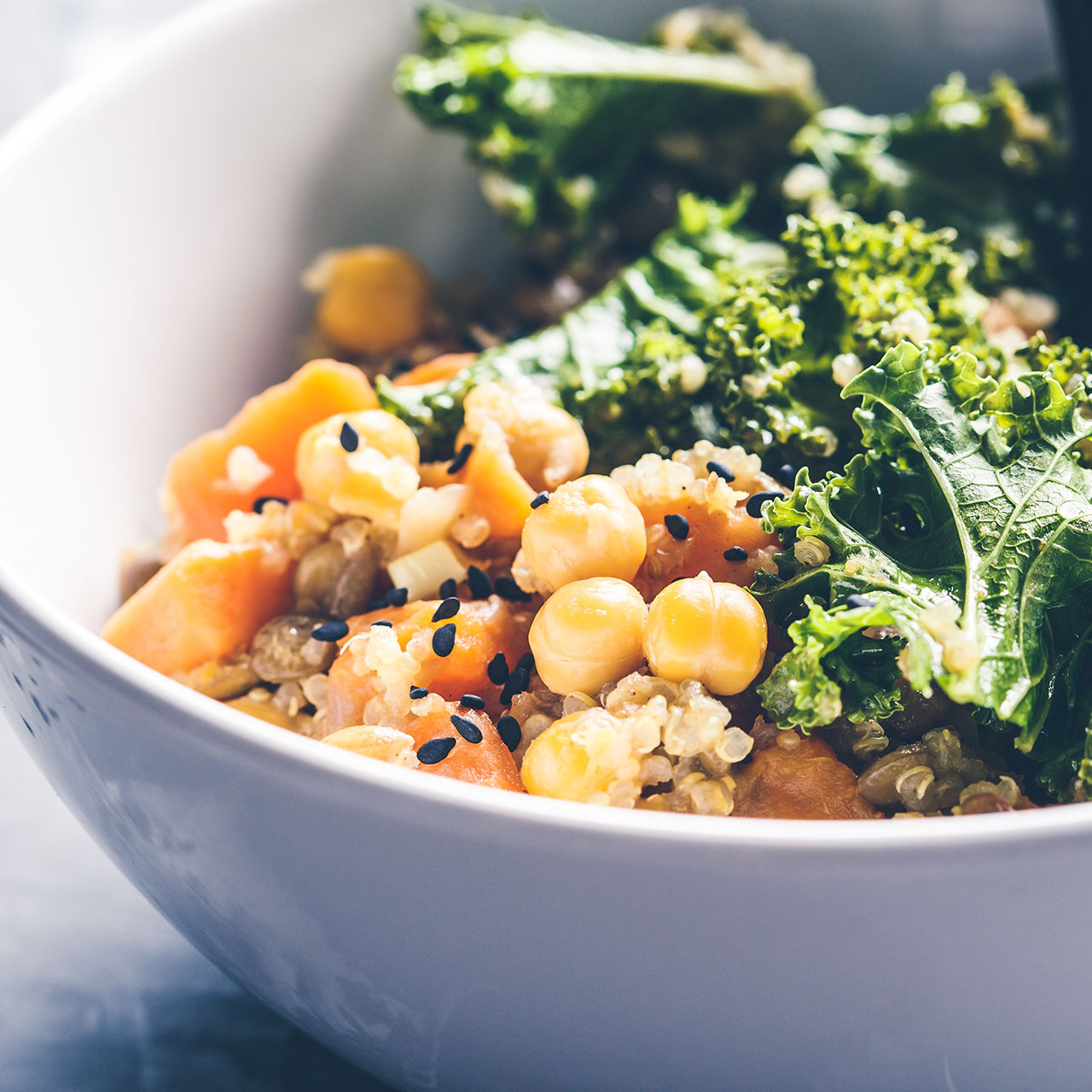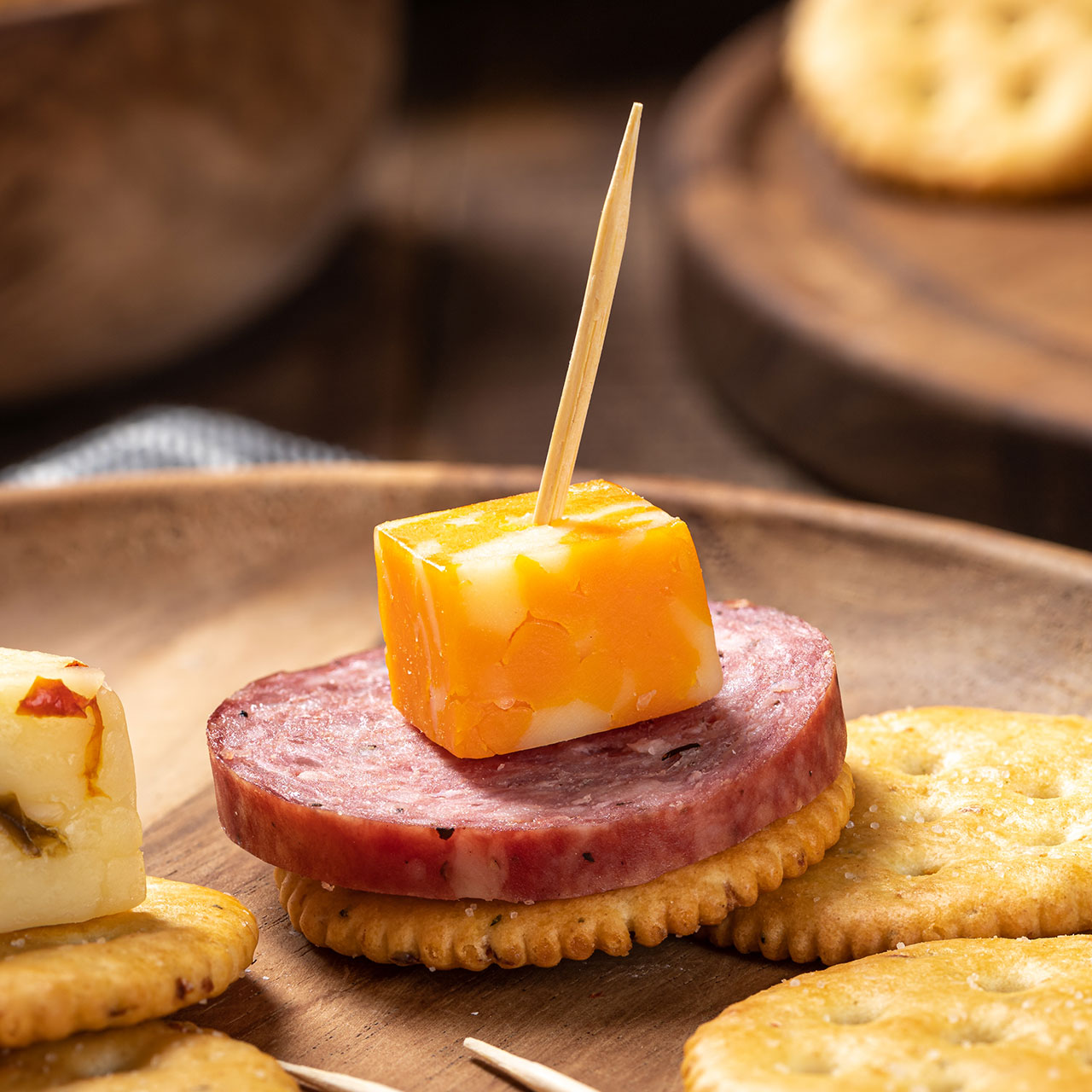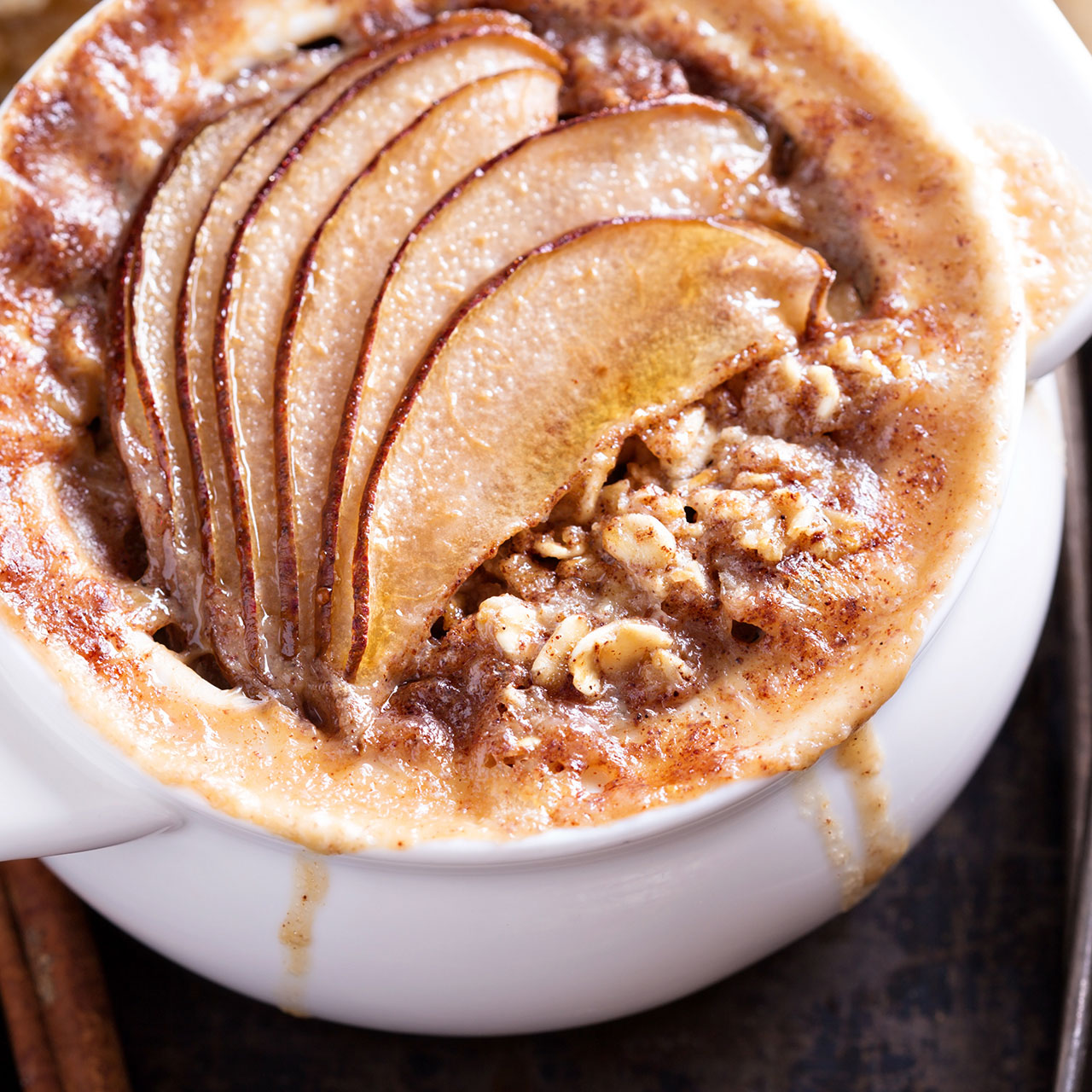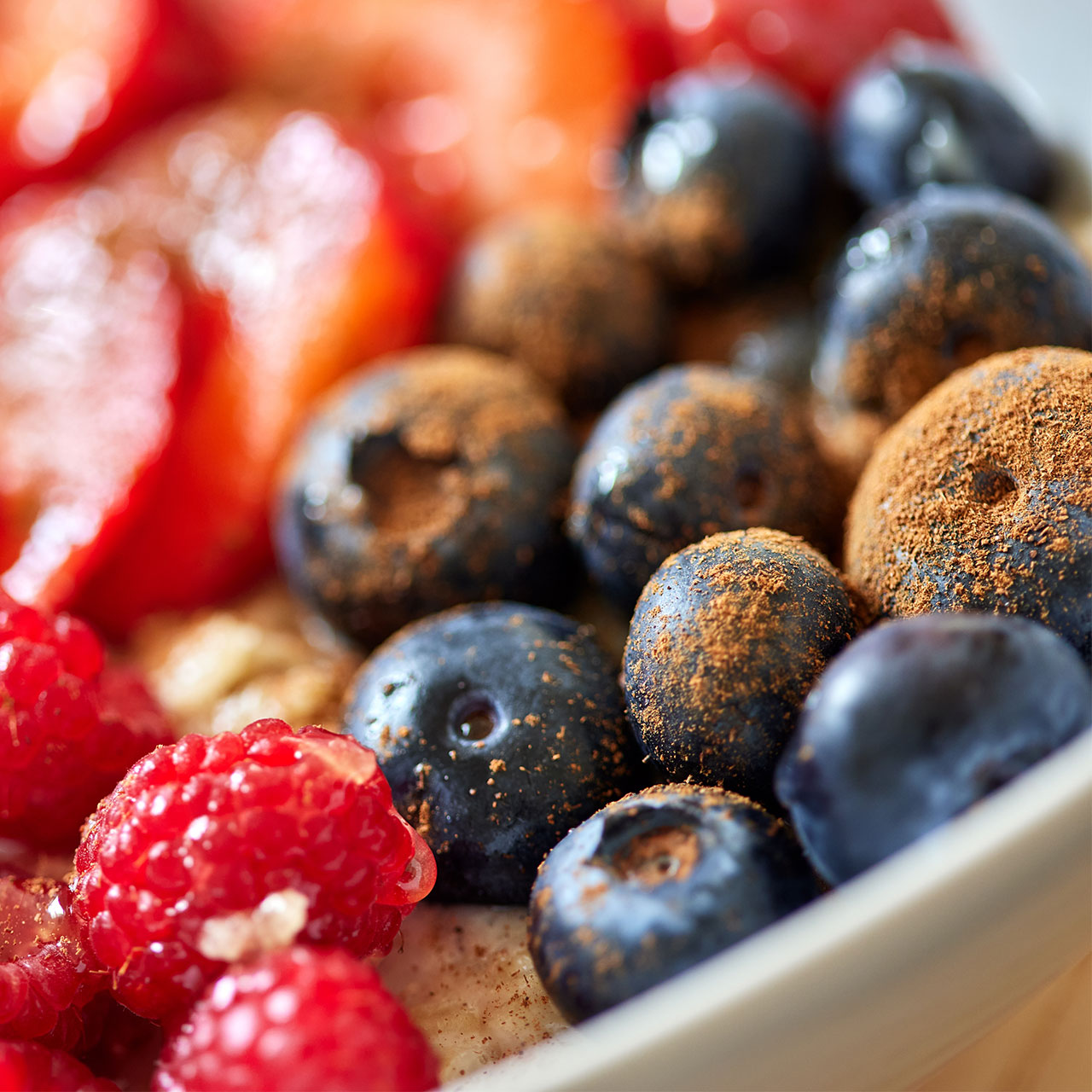Nutritionist and registered dietitian Anna Brown, MS, RD, of Nutrition Squeezed authored this story.
What is blood sugar and why is it important?
Blood sugar is more technically known as glucose, or how the sugars and carbohydrates that we eat break down into smaller molecules (glucose) in our body and are used for energy.
Carbohydrates are made up of carbon, hydrogen, and oxygen. Starch, sugar, and fiber are the most common carbohydrates. All but fiber turn into the same molecule of glucose in our body and our blood. Fiber passes through our digestive system undigested (although it feeds our good gut bacteria!).
Blood sugar is important because it’s what gives us energy. Glucose is the preferred form of energy for our brain, muscles, cells, and organs to function optimally. Because of this, carbs are not “bad!” We just need to focus on better-for-you options and keeping your blood sugar in balance.
Blood sugar BALANCE is what keeps us healthy and feeling good, every day. When we eat a carbohydrate or sugar without protein, fiber, or fat, it’s digested and metabolized much quicker, which in turn spikes our blood sugar too quickly for insulin to keep up with. Our body then ends up over-producing insulin to help transport all that circulating blood glucose into our cells, which can lead to that crash and subsequent sugar craving an hour after eating. Too many blood sugar spikes over the long term can add up to inflammation and metabolic conditions like diabetes.
When blood sugar is out of balance, it can lead to:
•Fatigue and that 3pm slump
•Sugar cravings
•Mood swings
•Headaches
•Hormonal imbalance
•And more serious metabolic conditions like diabetes

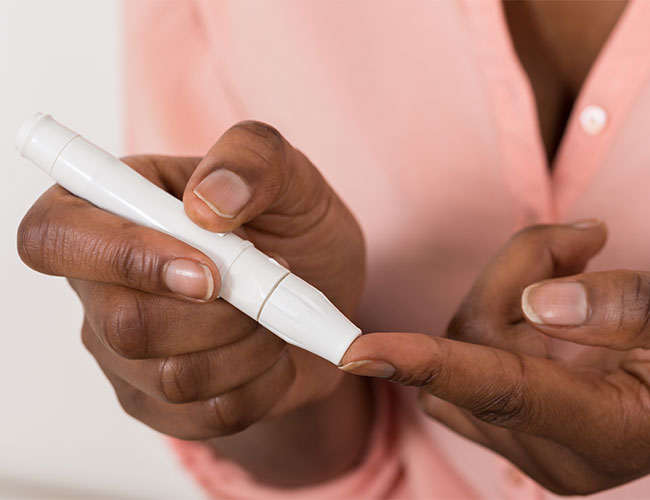
What are some of the best habits to control blood sugar?
The best ways to control and balance your blood sugar are by consuming better-for-you carbs, focusing on food combos, meal timing and consistency, food order, and what you do before and after meals.
Focus on better-for-you carbs.
These better-for-you carb options are loaded with fiber and/or protein and so will slow down your blood glucose spike. Remember, when we eat a carbohydrate or sugar without protein, fiber, or fat, it’s digested and metabolized much quicker, which in turn spikes our blood sugar too quickly for our body’s circulating insulin to keep up with. Protein, fat, and fiber slow down the digestion of glucose in our body.
Better-for-you options include:
•Starchy veggies (e.g. potatoes, corn, peas, winter squash)
•Whole grains (e.g. quinoa, oats, brown rice, wild rice)
•Legumes (e.g. lentils, chickpeas, black beans, soy beans)
Food combining
Again, when we eat carbs on their own, it can spike your blood sugar resulting in a rush of insulin, a sugar high, and then crash. To avoid these spikes and crashes, always eat a carb with a protein, fiber, and/or a fat in the same meal and/or snack. For example:
•Apple with nut butter
•Fruit with cheese
•Hummus with carrots and celery
•Crackers with cheese
•Toast with a hard boiled egg
•Oats with chia seeds, nut butter, and berries
Meal Timing & Consistency
In order to avoid blood sugar crashes (feels like fatigue, shakiness, crankiness, and lightheadedness), we want to eat carbohydrates consistently at each meal and snack throughout the day. We want to be eating every 3-4 hours during the day (it’s fine to go 12 hours without eating overnight though). Eating more often than this can lead to digestive problems and going more than 5 hours during the day can lead to low blood sugar.
In addition to consistency, we want to eat our meals around the same time every day (e.g. breakfast at 9am, lunch at 1pm, snack at 4pm, dinner at 7pm every day). Just like our circadian rhythm likes a consistent bedtime and wake up time, our digestive system likes consistent meal times because they can start to prepare for eating by producing digestive enzymes in advance - just like Pavolv’s dogs. Our digestive system has its own circadian rhythm so consistency is key!
Food Order
The order in which you eat the food on your plate can also help blunt the blood sugar spike. That’s because when we eat foods with fiber, fat, and protein BEFORE our carbohydrates, it coats our digestive tract and slows down the digestion of the carbohydrate. Even just eating your broccoli and chicken a couple minutes before your sweet potatoes can make a difference! On that same point, always have dessert right after a meal, not an hour or two after!
Ideal Food Order:
•1st: Non-starchy veggies first
•2nd: Protein & fat
•Last: Carbs
Examples:
•Eat broccoli before pasta
•Eat edamame before your sushi roll
•Eat a handful of nuts before your apple
•Eat a side salad before your risotto
Before & After Meals
What we do before and after meals can make a big impact on blood sugar balance.
Before
Research has shown that eating/drinking 1 tbsp of vinegar before a meal cuts glucose and insulin spike by up to 20%. This is an easy hack to implement by adding 1 tbsp of apple cider vinegar to a glass of water and drinking it before a meal, or making a salad dressing with balsamic vinegar and eating your salad before the rest of your meal.
After
Going for a short walk (10-15 minutes) after a meal helps your muscles use up glucose circulating in your bloodstream and thus lowers your blood glucose levels. Plus during the day you get added benefits of getting natural daylight to help your circadian rhythm!


















